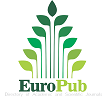The necessary incorporation of the community pharmacist to the interdisciplinary team that assists the terminally ill patient
Abstract
This work starts from the recognition of the important role that the community pharmacist plays, in health care, to people who suffer from a terminal process and to their family members and / or caregivers. There is no doubt that the advice, treatment and accompaniment of health professionals is essential in any pathology that involves a vital commitment. The community pharmacist, as a health agent, must be involved in these processes. However, on many occasions it is forgotten by a health system that wastes, in this way, one of its most qualified professionals.
We are convinced that the terminally ill patient and their family members and / or caregivers would be greatly favored by a greater involvement of pharmacists in their processes. For this reason, this article reflects on the benefits of including the community pharmacist in the healthcare team that cares for people in the terminal phase.
Downloads
References
Arias, M., García-Vivar, C. (2015). La transición de cuidados paliativos del hospital al hogar: una revisión narrativa de las experiencias de pacientes y cuidadores familiares. Invest Educ Enferm, 33(3): 482-491
Buisán, R., Delgado, J.C. (2007). El cuidado del paciente terminal. Anales del Sistema Sanitario de Navarra, 30 (Suppl.3): 103-112.
Canga, A., Canga, N., García-Vivar, C. (2016). Enfoque sistemático familiar: necesidad de formación para los profesionales de la salud. En: A.M. González, P. Arregui, y C Montoro (Eds.). Familia y Sociedad en el siglo XXI (pp.95-102). Madrid: Dykinson.
Delgado, J.C. (Coord.) (2005). Los cuidados del confort en el final de la vida: Responsabilidad enfermera. Asociación de Bioética Fundamental y Clínica.
Delgado-Sánchez, O., Nicolás-Picó, J., Martínez-López, I., Serrano-Fabiá, A., Anoz-Jiménez, L., Fernández-Cortés, F. (2009). Errores de conciliación en el ingreso y en el alta hospitalaria en pacientes ancianos polimedicados. Estudio prospectivo aleatorizado multicéntrico. Medicina Clínica, 133:741-744.
Domenech, J., Martínez, J., Plá, J.M. (1997). Biofarmacia y Farmacocinética. Madrid: Síntesis.
Flor, A., Pérez, I., Hortz, A., Díaz, A., Raja, M.I. (2005). Tratamiento farmacológico en los cuidados paliativos. Boletín Farmacoterapéutico de Castilla-La Mancha, VI (2): 1-8.
Hanratty, B., Holmes, L., Lowson, E., Grande, G., Addington-Hall, J., Payne, S., et al. (2012) Older adults' experiences of transitions between care settings at the end of life in England: a qualitative interview study. J Pain Symptom Manage, 44 (1):74-83.
Hasson, F., Kernohan, W.G., McLaughlin, M., Waldron, M., McLaughlin, D., Chambers, H., et al. (2010). An exploration into the palliative and end-of-life experiences of carers of people with Parkinson’s disease. Palliat Med, 24(7):731-736.
Morgan, N.A., Rowett, D., Currow, D.C. (2015). Analysis of drug interactions at the end of life. BMJ Supportive & Palliative Care, 5: 281-286
Newton, D.W. (2016). Does Your Drug Expertise Include Clinical Pharmaceutics? Int J Pharm Compd, 20(3): 202-206.
Norwood, M. (1990). Home care of the terminally ill. Am J Hosp Pharm, 47 (8 Suppl):S23-26.
Páez-Vives, F., Recha-Sancho, R., Altadill-Amposta, A., Montaña-Raduá, R.M., Anadón-Chortó, N., Castells-Salvadó, M. (2010). Abordaje interdisciplinar de la conciliación de la medicación crónica al ingreso en un hospital. Revista de Calidad Asistencial, 25(5):308-313.
Rabow, M.W., Hauser, J.M., Adams, J. (2004). Perspectives on care at the close of life. Supporting family caregivers at the end of life: "they don't know what they don't know". JAMA, 291(4):483-491.
Renee Hill, R. (2007). Clinical pharmacy services in home-based clinical palliative care program. American Journal of Health-System Pharmacy, 64 (8): 806-810.
Rivas, S. (Coord.)(2015). Generaciones conectadas: beneficios educativos derivados de la relación entre nietos y abuelos. Madrid: Pirámide.
Saavedra-Quirós, V., Montero-Hernández, E. et al. (2016). Conciliación de la medicación al ingreso y alta hospitalaria. Una experiencia consolidada. Revista de Calidad Asistencial, 31 (51): 45-54.
Santos, J. (2014). El derecho a morir en casa. Reflexiones de un médico. Revista de Calidad Asistencial, 29 (5): 291.
Seidman, S., Pano, C.O., Dorina, S., Bail, V., Acrich, L. (2004) Sentimiento de sobrecarga y apoyo social en cuidados familiares de enfermos crónicos. Revista de Psicología, 22 (1): 45-62.
Soto, J., Fernández, P. (1998). Evaluación económica de medicamentos: aplicaciones prácticas para los diferentes agentes decisores. Medicina Clinica, 110: 699-702.
Soto, J. (2001). Estudios de Farmacoeconomía ¿por qué, cómo, cuándo y para qué? Medifam, 11(3): 147.
Strachan, P.H., Ross, H., Rocker, G.M., Dodek, P.M., Heyland, D.K., Canadian Researchers at the End of Life Network (CARENET).(2009) Mind the gap: Opportunities for improving end-of-life care for patients with advanced heart failure. Can J Cardiol, 25(11):635-640
Tallman, K., Greenwald, R., Reidenouer, A., Pantel, L. (2012). Living with advanced illness: longitudinal study of patient, family, and caregiver needs. Perm J, 16(3):28-35.
Tjia, J., Velten, S.J., Parsons, C. et al. (2013). Studies to Reduce Unnecessary Medication Use in Frail Older Adults: A Systematic Review. Drugs Aging, 30, 285–307.
Torralba i Rosselló, F. (1998). Antropología del cuidar. Madrid: Fundación Mapfre.
Villamayor-Blanco, L., Herrero-Puch, L., de Miguel Bouzas, J.C., Freire-Vázquez, M.C. (2016). Conciliación de medicamentos al ingreso mediante un programa de prescripción electrónica asistida. Farmacia Hospitalaria, 40 (5): 334.
The authors retain copyright.
This work is under international license Creative Commons Attribution 4.0.
The articles published by the scientific journal "Notes on Bioethics" of the Universidad Catolica Santo Toribio de Mogrovejo, Chiclayo Peru, can be shared through the international public license Creative Commons Attribution CC BY 4.0
























 LIBRARY USAT
LIBRARY USAT